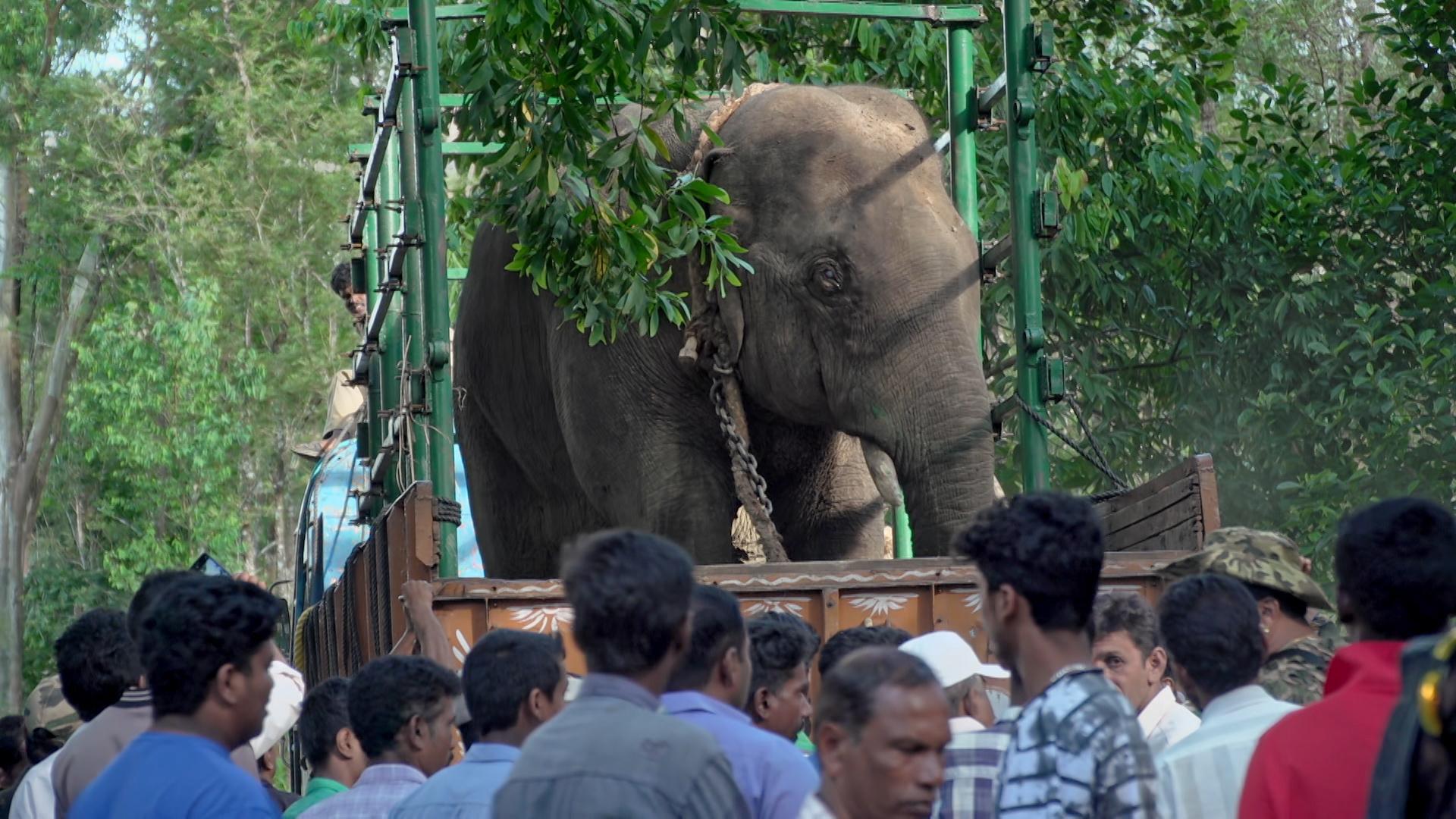
This ticket allows you to view all 33 films that form the ALT EFF 2020 official selection.
Select a film to view the synopsis and details below
WINNER : Bhoomi Award for Best Indian Short
With the planet’s human population growing and natural habitats shrinking, the ability of wild animals and people to share space is going to be one of the world’s biggest conservation challenges. But can large animals like elephants and people really live together?
The long-term survival of elephants in India hinges on this question, and a leading conservationist named Ananda Kumar is on a mission to prove that they can. For the last sixteen years, he has been pioneering a radically different approach to conservation, using accessible, low-cost technology to minimise accidental deaths and damage to crops and property. Perhaps even more effective than the technology is his focus on involving local communities and government agencies in the conservation process. He believes this engagement can increase people’s tolerance of elephants, giving both species a much better chance to co-exist.
According to Dr. Kumar, the dominant conservation theories developed in the West, where wild animals have largely been wiped out, must be adapted for countries like India where 300 million people still live in close proximity to wildlife. Increased contact with wildlife has led to the death of more than 1500 people, the vast majority of them killed by elephants, since April 2014. Retaliatory attacks on these animals have followed, threatening the already precarious ecological balance.
The focus on coexistence as a solution is a major departure from the conventional conservation wisdom that wild animals and people are inherently incompatible, and that fenced-off, protected areas are needed for the animals to survive. In India, with its dense human population, only 5% of the land area is protected, covering barely a fifth of the elephant’s actual range. 65% of India’s elephants live in human-intensive landscapes, and it is here that Dr. Kumar has focused his work.
Over the past decade, he successfully tested his text-message and light-based based early-warning systems in the tea highlands of the Valparai region of Tamil Nadu, turning a conflict hot-spot into one that has witnessed zero human deaths over the last three years. But was it a fluke, or successful only because of Valparai’s relatively small human and elephant populations?
To see if his methods have a pan-India relevance, Dr. Kumar is now launching an ambitious new program in Hassan, a densely populated and fraught landscape which has been marked as an ‘elephant removal zone’ due to high levels of human-elephant conflict. Despite brutal elephant capture and relocation drives, the elephants keep returning to Hassan, signalling the need for a different approach.
For the past few months, Dr. Kumar has been building partnerships with local government agencies and communities in Hassan to get support for his vision and methods. Unlike Valparai, he’s dealing with an irate human population that sees the elephants as encroachers and wants them removed at any costs. Will he succeed in changing their attitudes, and give the elephants of Hassan a chance to survive?
- Year2020
- Runtime00:25:00
- LanguageEnglish
- CountryIndia
- PremiereNo
- DirectorVikram Singh
- ScreenwriterVikram Singh
- ProducerVikram Singh
- CastDr. Anand Kumar, Vinod Krishnan
- EditorSebastian Buffi, Vikram Singh
- Sound DesignPeregrine Andrews
- MusicVarious - Yaleesa Hall, Black Merlin, Frame/Frame
This ticket allows you to view all 33 films that form the ALT EFF 2020 official selection.
Select a film to view the synopsis and details below
WINNER : Bhoomi Award for Best Indian Short
With the planet’s human population growing and natural habitats shrinking, the ability of wild animals and people to share space is going to be one of the world’s biggest conservation challenges. But can large animals like elephants and people really live together?
The long-term survival of elephants in India hinges on this question, and a leading conservationist named Ananda Kumar is on a mission to prove that they can. For the last sixteen years, he has been pioneering a radically different approach to conservation, using accessible, low-cost technology to minimise accidental deaths and damage to crops and property. Perhaps even more effective than the technology is his focus on involving local communities and government agencies in the conservation process. He believes this engagement can increase people’s tolerance of elephants, giving both species a much better chance to co-exist.
According to Dr. Kumar, the dominant conservation theories developed in the West, where wild animals have largely been wiped out, must be adapted for countries like India where 300 million people still live in close proximity to wildlife. Increased contact with wildlife has led to the death of more than 1500 people, the vast majority of them killed by elephants, since April 2014. Retaliatory attacks on these animals have followed, threatening the already precarious ecological balance.
The focus on coexistence as a solution is a major departure from the conventional conservation wisdom that wild animals and people are inherently incompatible, and that fenced-off, protected areas are needed for the animals to survive. In India, with its dense human population, only 5% of the land area is protected, covering barely a fifth of the elephant’s actual range. 65% of India’s elephants live in human-intensive landscapes, and it is here that Dr. Kumar has focused his work.
Over the past decade, he successfully tested his text-message and light-based based early-warning systems in the tea highlands of the Valparai region of Tamil Nadu, turning a conflict hot-spot into one that has witnessed zero human deaths over the last three years. But was it a fluke, or successful only because of Valparai’s relatively small human and elephant populations?
To see if his methods have a pan-India relevance, Dr. Kumar is now launching an ambitious new program in Hassan, a densely populated and fraught landscape which has been marked as an ‘elephant removal zone’ due to high levels of human-elephant conflict. Despite brutal elephant capture and relocation drives, the elephants keep returning to Hassan, signalling the need for a different approach.
For the past few months, Dr. Kumar has been building partnerships with local government agencies and communities in Hassan to get support for his vision and methods. Unlike Valparai, he’s dealing with an irate human population that sees the elephants as encroachers and wants them removed at any costs. Will he succeed in changing their attitudes, and give the elephants of Hassan a chance to survive?
- Year2020
- Runtime00:25:00
- LanguageEnglish
- CountryIndia
- PremiereNo
- DirectorVikram Singh
- ScreenwriterVikram Singh
- ProducerVikram Singh
- CastDr. Anand Kumar, Vinod Krishnan
- EditorSebastian Buffi, Vikram Singh
- Sound DesignPeregrine Andrews
- MusicVarious - Yaleesa Hall, Black Merlin, Frame/Frame

